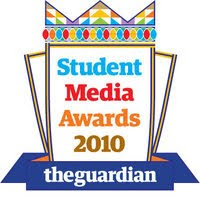
So many fellow Michael McIntyre and Hoff lovers may have noticed the Circus of Horrors cast crop up on the Britain's Got Talent show recently (and get through...interesting). I actually was given the delightful / soul destroying job of watching and reviewing an entire Circus of Horrors show for the paper so thought heck, why not upload my review to a) get the blog blogging again and b) fill in the bits they sadly missed out from their BGT entry
-Basically I am referring to all the parts involving nudity.
- Which unfortunately was most of it.
- Unfortunately as most of it was performed by the ageing dwarf.
- Sadly because it made me cry.

As the emphatic beats began booming around the blackened auditorium and the show’s world famous horrors slink their way out onto the stage via their individually, abnormal travelling methods (think backwards walking crab, fire spitting flying leaps), it becomes very apparent that the Circus of Horrors was not going to be like any other theatre show I have yet to encounter.
Celebrating its fifteenth “bloody” year, the Circus of Horrors promotional leaflet promised an"incredible revamped performance" for the milestone anniversary, where spectators would be taken on a "rockin’ & amp; shockin’ encounter through some of the most horrifying chapters in time." I was certainly intrigued.
What it did fail to mention, however was that a "shocking encounter" - Circus of Horrors style - often involves a large amount of nudity, including a placing of things in areas that they should never be placed and frequent overly vulgar sexual jokes – even for an adult show.
In addition, to allude to there being a storyline was an unnecessary oversight. For amongst the mish mash of props, scantily-clad performers and deafening electric guitar undertones from rock-metal group Dr Haze and the Inceptors from Hell, the performance may have well of been in a foreign language in as far as what could be understood.
Fortunately for the Circus of Horrors no-one visits a circus to see an ingeniously scripted show.
As far as what a circus is all about – the performers – this highly energized, talented bunch mainly didn’t disappoint. Though they did - they would be thrilled to hear - frequently horrify.
Incredible female contortionists had the whole audience wincing, skilled knife throwers and daring trapeze artists brought all to the edge of their seats, and the heavily tattooed and overly pierced ‘Hannibal’ filled the room with squeals as he proceeded to protrude his special sword swallowing surgically broken ribs out from his chest before finishing the painful-to-watch ingesting act.
Yet, jokes from the shows founder and ‘undead’ ringmaster Dr Haze frequently fell flat, the regular nudity of a particularly self-assured dwarf were possibly the most terrifying sights of the entire evening, and at times there was a sense of amateurishness with missed catches and prolonged stunts - perhaps the effect of an overly packed, exhausting tour schedule.
Undoubtedly the Circus of Horrors is not for the young, faint hearted, prudish or those of a nervous disposition. Yet there is something undoubtedly mesmerizing about the fast-paced, repellent yet extraordinary performances that will leave stronger-stomached fans wishing for more.
I would suggest for future performances however that ‘The Rock Circus of Erotic Horrors’ would be a more fitting title for the show.













